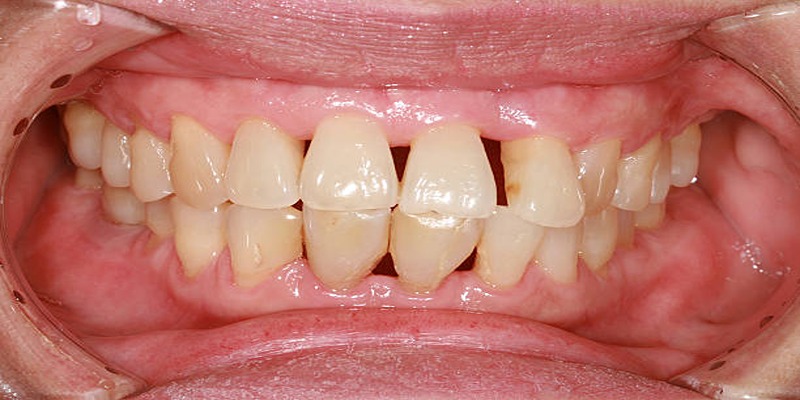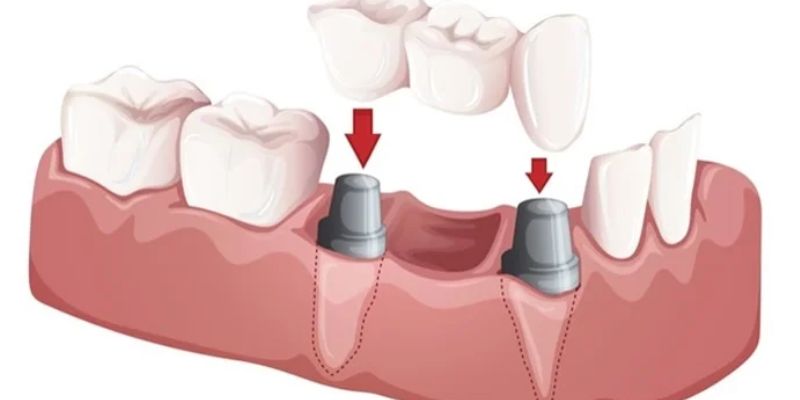Receding Gums: 7 Causes and How a Dentist Recommends Fixing Them
2024-11-07 00:00:00 By Nancy Miller
Receding gums, a prevalent dental concern, occur when the gum tissue around the teeth deteriorates or retracts, exposing more of the tooth or its root. This condition poses significant risks, including tooth sensitivity, a heightened likelihood of decay, and potential tooth loss if not addressed. Understanding the various causes of gum recession is essential for effectively tackling this issue. Factors such as inadequate oral hygiene, aggressive brushing, periodontal disease, and lifestyle choices like tobacco use can contribute to gum recession. Moreover, genetic predisposition and hormonal changes may also play a role. Fortunately, modern dentistry provides an array of solutions for treating receding gums. This guide will examine the top seven causes of receding gums and discuss dentist-recommended treatments aimed at restoring oral health and preventing further complications.
Top 7 Causes of Receding Gums

1. Poor Oral Hygiene
Poor oral hygiene is a major contributor to gum recession. When brushing and flossing are overlooked, plaque can build up along the gumline. This plaque eventually hardens into tartar, which is much harder to remove. The accumulation of tartar creates a breeding ground for bacteria, leading to gum inflammation and infection, commonly known as gingivitis. If not addressed, gingivitis can advance to periodontitis, a more serious gum disease that results in gum recession. To break this cycle and support healthy gums, it's crucial to maintain a regular oral hygiene routine, including routine dental check-ups and cleanings.
2. Aggressive Tooth Brushing
Using too much force while brushing or brushing with a hard-bristled toothbrush can cause the enamel on your teeth to wear down and your gums to recede. This destructive action damages the delicate gum tissue, leading to sensitivity and further recession. Dentists recommend using a soft-bristled toothbrush and a gentle brushing technique to safeguard your gums. Following the 45-degree angle brushing method can help clean your teeth effectively without harming the gums. Switching to an electric toothbrush with a pressure sensor may also aid in preventing over-brushing.
3. Periodontal Disease
Gum disease, or periodontal disease, is a major cause of gum recession. This infection damages the tissues and bone structures that support teeth, leading to gum detachment and tooth exposure over time. It is primarily caused by plaque buildup, with specific bacteria triggering an inflammatory response that weakens the gums and supporting structures. Prompt treatment of periodontal disease is essential to halt damage and prevent extensive gum recession. Treatment may involve professional cleanings, antibiotics, or even surgery in severe cases.
4. Genetics
Genetic factors can predispose some individuals to gum recession regardless of their oral care routine. Research has shown that up to 30% of the population may be genetically inclined to develop gum disease, even with diligent oral hygiene practices. Family history and genetic profiles can influence the thickness and durability of gum tissues. A personalized approach to dental care, guided by a professional, can help manage risks associated with genetic predispositions.
5. Hormonal Changes
Hormonal fluctuations experienced during puberty, pregnancy, or menopause can increase the sensitivity of gums and make them more susceptible to recession. During these periods, the gums become more reactive to plaque, often resulting in increased inflammation and recession if proper oral care is not maintained. Women are advised to pay extra attention to oral hygiene and maintain regular dental consultations during these times to protect their gum health.
6. Misaligned Bite or Teeth Grinding
An improper bite or habits like teeth grinding and clenching exert excessive force on the gums and supporting bone structures, causing them to recede over time. The constant pressure and friction can irritate and eventually damage the gums. Addressing bite alignment through orthodontic treatments or using a night guard (mouthguard) for grinding can help alleviate stress on the gums, preventing further recession.
7. Oral Piercings
Oral piercings, such as tongue or lip rings, can contribute to gum recession due to the constant contact and irritation they cause to the gum tissue. Repeated contact from these jewelry items can wear away at the gums, leading to recession. This physical trauma can eventually result in gum inflammation, infection, and even tooth damage if left unchecked. If you have or are considering an oral piercing, it is crucial to ensure proper care and regular dental check-ups to monitor the health of your gums. Consulting with a dental professional can provide insights into minimizing risks associated with oral piercings and maintaining optimal oral health.
Dentist-Recommended Treatments for Receding Gums

Improved Oral Hygiene Practices
Adopting a meticulous oral hygiene routine is crucial in managing and preventing further gum recession. Dentists emphasize the importance of brushing twice daily with a soft-bristled toothbrush and using fluoride toothpaste. Daily flossing is equally essential to remove plaque from areas a toothbrush can't reach. Regular visits to the dentist for professional cleanings and check-ups are vital in keeping tartar buildup in check and monitoring gum health.
Scaling and Root Planing
In more severe cases of gum recession due to periodontal disease, scaling and root planing may be advised. This deep cleaning procedure targets the removal of plaque and tartar from beneath the gumline while smoothing the root surfaces. By eliminating bacteria and irritants, this treatment promotes the reattachment of gums to the teeth, effectively reducing recession and preventing further damage.
Gum Grafts
In cases where significant gum tissue has been lost, a gum graft might be necessary to restore the appearance and function of the gums. This procedure involves taking tissue from another area of the mouth or using donor tissue to cover exposed roots. Gum grafts not only enhance cosmetic appeal but also reduce sensitivity and protect the roots from decay.
Laser Therapy
Laser-assisted periodontal therapy is a minimally invasive option that uses laser energy to remove diseased tissue and promote the regeneration of healthy gum tissue. This method can be particularly effective in targeting specific bacteria responsible for gum disease and recession. Lasers allow for precise treatment with reduced discomfort and recovery time compared to traditional surgical methods.
Bite Adjustment and Mouthguards
If misalignment or bruxism (teeth grinding) is contributing to gum recession, addressing these underlying issues is crucial. Orthodontic treatments can realign the bite, reducing the undue pressure on gums. Additionally, wearing a custom-fitted mouthguard at night can protect against the damaging effects of grinding and help preserve gum health.
Medications
In some instances, dentists may prescribe medication to treat the underlying causes of gum disease. These could include antimicrobial mouth rinses, antibiotic gels, or oral antibiotics. These medications aim to reduce bacterial infection and inflammation, thus encouraging gum tissue stabilization and healing.
Conclusion
Maintaining optimal gum health is a vital part of overall oral care. By understanding the factors that contribute to gum recession and exploring various treatment options, individuals can take proactive steps to protect their gums and prevent further damage. Awareness and regular dental consultations are key to managing the influences of genetics, hormonal changes, and lifestyle habits on gum health. With a combination of improved hygiene practices, professional treatments, and personalized care, it is possible to manage gum recession effectively, ensuring both the aesthetics and functionality of a healthy smile.








